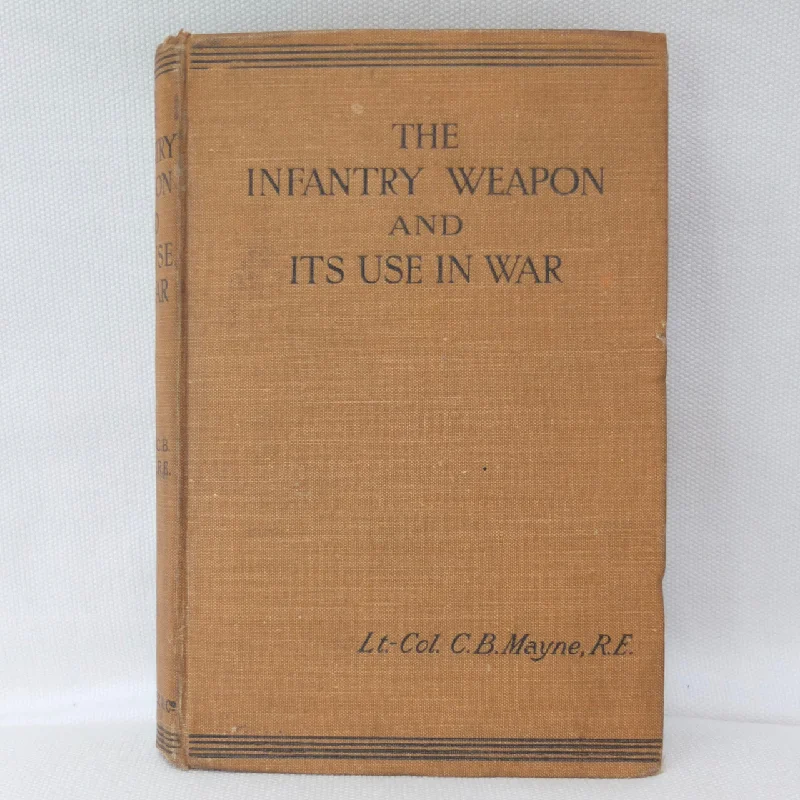THE INFANTRY WEAPON
AND ITS USE IN WAR
Lt-Col. C. B. MAYNE R.E.
published by
SMITH ELDER & Co. LONDON, 1903
A rare first edition of Lt-Col. C. B. Mayne’s influential work on infantry weapons, tactics and operations, published in 1903, and drawing upon the experience of the recent war in South Africa. Subjects covered include: the infantry weapon (rifle, bayonet and machine gun), long range firing, use of cover, collective firing, indirect firing, telescopic sights, night firing, rapid loading of rifles, fire discipline, musketry training, rifle fire in war, and notes on German musketry training. This book originally belonged to Captain R. V. Barker, a regular officer with the Royal Welsh Fusiliers (also known as the Royal Welch Fusiliers), and is signed by him on the front endpaper. There are several neat pencil annotations in the margins, made by Captain Barker, showing his views on the value of some of the author’s arguments and opinions. As a veteran of the Boer War, Captain Barker would have been very well aware of the most recent developments and advances in infantry weapons and their use in combat.
Captain R. V. Barker (1880-1914): Richard Vincent Barker was educated at New College, Oxford and served in the Militia before joining the Regular Army in 1901. As an officer in the Royal Welsh (or ‘Welch') Fusiliers he was immediately posted to South Africa, where he saw action in the Transvaal and at the Orange River. He was made adjutant of his battalion in July 1901, a position he held until 1909. In 1909 he served with the West african Frontier Force. On the outbreak of WW1 he was appointed Staff Captain to the 22nd Brigade of the 7th Division. On 31st October 1914 Captain Barker was in action during the First battle of Ypres. After nearly all the officers in his regiment were killed, Captain Barker was assisting wounded men under heavy fire, attempting to rally them and lead them forward, when he was shot through the chest and killed. His Brigadier later described him as ‘Quite exceptional, a good friend and a splendid officer, no matter how hard the work, he was always cheerful’. Captain Barker was mentioned in Despatches in February 1915 for ‘Gallant and distingusihed service in the field’. (I will include details of Captain Barker’s military service with the book).
Condition:
In good condition. The boards are in good condition, with minor signs of wear and use and a few marks. The binding and hinges are good and secure. The text is in very good condition, with a few marks, some marks to the endpapers, and a small ink name stamp to the title page and front endpaper. There are some neat pencil annotations made by Captain Barker. Signed on the front endpaper by ‘R. V. Barker, R.W.F.’.
Published: 1903
Khaki cloth with black titling
Dimensions: 135mm x 200mm
Pages: 341

